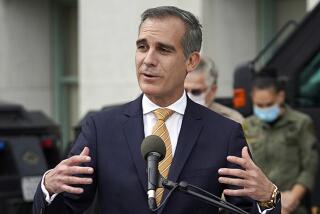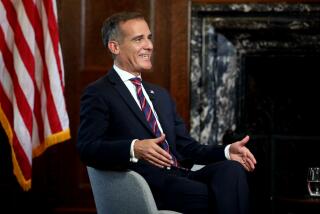Wilson Must Go
If William A. Wilson, the U.S. ambassador to the Vatican, fails to resign, President Reagan has an obligation to dismiss him. There must be limits to the toleration of cronyism.
The White House has now confirmed that Wilson’s secret mission to Libya, in the wake of the terrorist killing Dec. 27 at the Rome Airport, was not authorized. By all accounts, the White House was as surprised as the State Department to learn of Wilson’s trip. Indeed, both the White House and the State Department apparently learned of the mission from Moammar Kadafi, the Libyan ruler, who alluded to the diplomatic contacts in a press conference Jan. 5.
This is not the first occasion on which Wilson has shown a less-than-satisfactory appreciation of the responsibilities of those serving in positions of public trust. But it is the gravest incident on the public record. His earlier indiscretions occurred while he was serving as the President’s personal representative to the Holy See, before full diplomatic relations were established at the end of 1983 and he was confirmed as ambassador in March, 1984. There was concern at that time that he was not drawing an appropriate distinction between his personal business interests and his responsibilities as an envoy of the President.
Wilson’s mission to Libya revived that concern about the intrusion of personal interests. Wilson, with permission of the President, has continued to serve on the board of directors of Pennzoil Corp., despite State Department regulations against such service. He is the owner of 328,000 shares with a current market value of about $18 million. He was appointed to the Pennzoil board in April, 1983, almost a year before his confirmation as ambassador to the Vatican. Pennzoil issued a statement Monday saying that it had no interests in Libya and no plans for establishing business there. Reagan last year ordered American businesses to suspend operations in Libya and Americans to leave, but the order has since been modified to permit some business connections to continue.
Secretary of State George P. Shultz reprimanded Wilson, according to a report in the New York Times exposing the secret trip. That response contrasts with the reaction during the presidency of Jimmy Carter when it became known that Andrew Young, then U.S. representative to the United Nations, had made contact with the Palestine Liberation Organization in conflict with established American policy. Young promptly resigned.
There are enough conflicts and confusions over foreign policy without having individuals, among them amateurs, charting their own policies. As Kadafi’s press conference statement indicated, Wilson’s secret mission to Tripoli confused the government of Libya at a time when Reagan was trying to curtail the murderous campaign of terrorism operating from Libyan territory.
More to Read
Sign up for Essential California
The most important California stories and recommendations in your inbox every morning.
You may occasionally receive promotional content from the Los Angeles Times.










